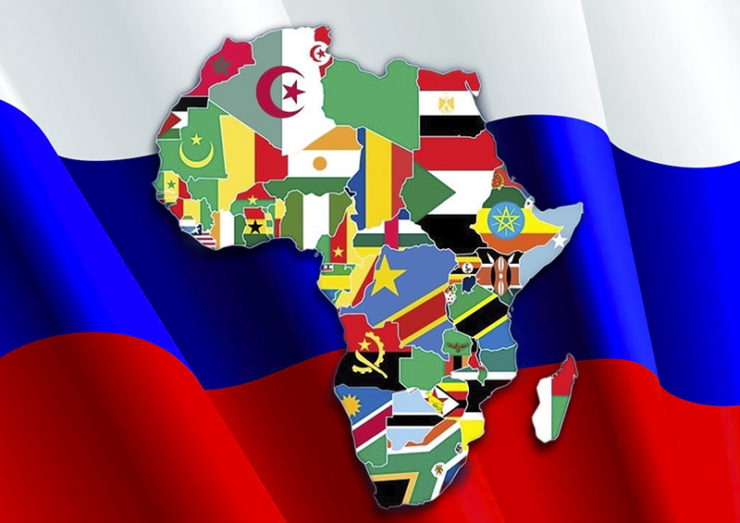
The winds of power have shifted dramatically since the beginning of the Ukraine crisis. Dozens of nations, particularly those in Africa, now sway in the direction of Russia and China and away from neocolonialist countries. Recent meetings between Russia’s President Vladimir Putin and vital African leaders are a weather vane for what is to come.
If you read the biography of South Sudanese President Salva Kiir Mayardit, you’ll learn why he always wears a Stetson cowboy hat. The headwear is significant for one reason. As a gift from former U.S. President George W. Bush, it represents how allegiances and partnerships change at the drop of a hat. And since the Obama administration, American interests in the old continent have gone from bad to worse. The other day, a meeting between Mayardit and Putin to solidify trade and energy cooperation blew the windsock of detente in Russia’s and South Sudan’s direction away from Western influences. Of particular importance was a promise from Putin to develop oil refineries in South Sudan with the participation of Russian companies. He also said:
“This is only the beginning. We have many good opportunities in a variety of fields, including energy.”
Turning to Libya, news that General Khalifa Haftar visited Putin in Moscow is another directional message. Some may not recall, but in 2011, when a U.N. resolution authorized “all necessary measures” to protect civilians in Libya, Russia would not approve. Then Russian President Dmitry Medvedev ultimately agreed to abstain from the U.N. Security Council vote, and within a few days, the military “no-fly zone” campaign over Libyan skies began. Kaftar was a crucial player in the overthrow of Muammar Gaddafi back then. He was also a naturalized American citizen linked to the CIA. He has been called “Libya’s most potent warlord.” His military experience is unrivaled anywhere in North Africa.
Haftar, who sponsors a rival administration to Libya’s UN-backed government in Tripoli, has had close relations with Moscow for some time now. Interestingly (tellingly), Haftar was instrumental in the coup that brought Gaddafi to power. His loyalties, like many national leaders worldwide, are leaflike depending on his and his constituent’s goals. According to TASS, the meeting was to discuss the situation in Libya and mutually beneficial cooperation. Though nothing was mentioned in the reports, Haftar likely discussed redeploying. Wagner troops to Libya if for no other reason than to pressure the U.N., the U.S., and allies. A unified Libya in the sphere of Moscow would significantly upset the Liberal hegemony of the West.
Several trends become apparent in South Africa’s lean toward Russia. First and foremost, the African National Congress has clearly supported Russia’s moves in Ukraine. Secondly, the South African Communists and the Congress of South African Trade Unions have asserted that Ukraine is a “NATO-provoked war.” What’s more, Julius Malema, leader of the far-left Economic Freedom Fighters, a possible plausible future vice-president of South Africa, told people at a rally recently, “We are Putin and Putin is us.” To add insult to hegemony injury, Nigeriens waving pro-Putin protest signs and Russian flags at a recent rally hint at a pro-Russia tornado brewing across Central Africa.
Finally, Russia is expanding its influence via the crucial agricultural sector. A severe food import dependence already puts Russia in the driver’s seat for creating positive relations with still more nations. The free grain promised by Vladimir Putin when the Ukraine blockage was reinstated rivals anything USAID ever did for Africans. Talk about a coup! Russia’s unmatched grain capacity is as important as the country’s energy wealth, especially in places where people are hungry. And nowhere are there more empty stomachs than in Africa.
A Russian wind is blowing over fifty-four countries, which will probably emerge as critical stakeholders in the so-called “multipolar world.” And with this, we see the reason for Washington’s, London’s, and Brussels’ desperation to aid Ukraine.
Phil Butler, is a policy investigator and analyst, a political scientist and expert on Eastern Europe, he’s an author of the recent bestseller “Putin’s Praetorians” and other books. He writes exclusively for the online magazine “New Eastern Outlook”.
